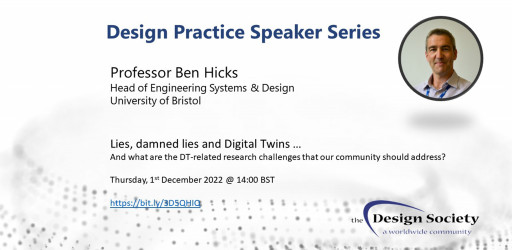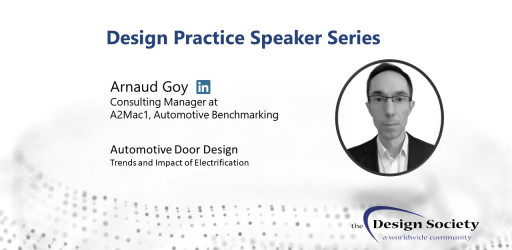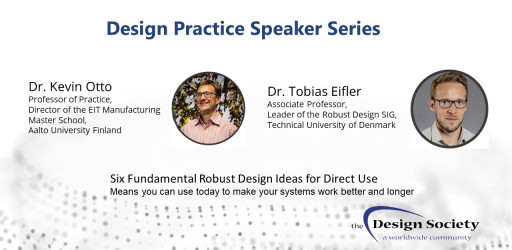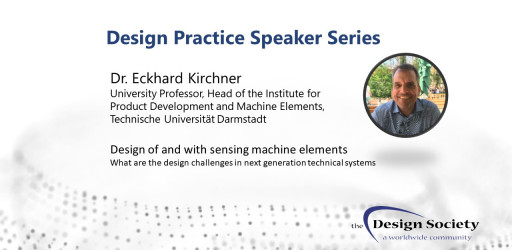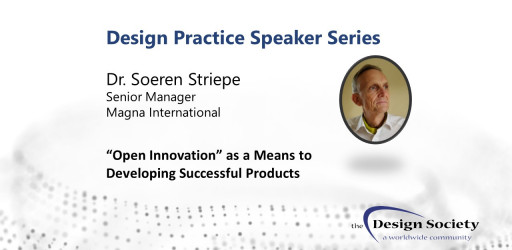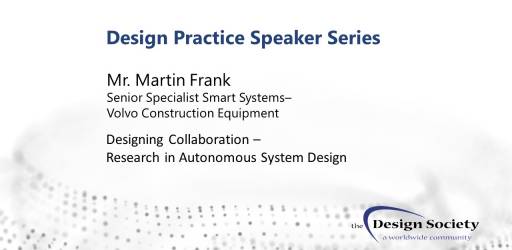Cox, Christopher Michael Jason;
Hicks, Ben;
Gopsill, James;
Snider, Chris // 2023
Advancements in prototyping technologies – haptics and extended reality – are creating exciting new environments to enhance stakeholder and user interaction with design concepts. These interactions ...
Bickel, Sebastian;Goetz, Stefan;Wartzack, Sandro // 2023
The digitalization trend is finding its way more and more into product development, resulting in new frameworks to enhance product engineering. An integral element is the application of new ...
Pendzik, Martin (1);
Holtzhausen, Stefan (1);
Heinemann, Sascha (2);
Paetzold, Kristin (1) // 2023
Additive manufacturing (AF) is characterised by a high degree of individuality and flexibility with regard to design and product layout. This enables the integration of different functions in a ...
Valentin Schemmann, Thorsten Schmidt, Niels Demke, Frank Mantwill // 2023
This paper investigates the general possibility for applying generative models in the early phase of product development. For this purpose, the fundamentals of feature-based product development are ...
Freimane, Aija // 2023
This study analyses emotional wellbeing and the learning process of design students in a globally distributed learning environment. Currently students are known for their capabilities to find ...
Snider, Chris (1);
Goudswaard, Mark (1);
Ranscombe, Charlie (2);
Hao, Chaunpeng (1);
Gopsill, James (1);
Hicks, Ben (1) // 2023
The breadth of media and approaches used when prototyping are vast, with each holding inherent properties that vary their suitability for a given prototyping activity.
While several have established ...
Bailey, Stuart Graham // 2023
Designing for a circular economy introduces complex networks, collaborations, and relationships into the context of product design. Increasingly, the context within which young undergraduate and ...
Juuti, Tero Sakari (1);
Heikkinen, Teuvo (1);
Heino, Tero (2);
Graf, Ilari (3);
Tomberg, Juha-Pekka (3);
Oja, Hannu (4) // 2023
This research elaborates the engineering design of high value low volume (HVLV) artefacts (aka Capital goods, investment goods). Our goal is to describe what information needs the practitioners have ...
Herrmann, Jeffrey W. (1);
Gralla, Erica (2);
Fazelpour, Mohammad (1) // 2023
When a design team faces the problem of designing a complex system, they are required to make several decisions. Because such design problems are difficult to solve all at once, teams often decompose ...
Liewerenz, Oliver;
Grauberger, Patric;
Nelius, Thomas;
Matthiesen, Sven // 2023
Testing activities to gain specific design knowledge play an essential role in engineering design, when a structure needs to be developed, for which knowledge from analytical models or documentation ...
Merlin Stolzle, Daniel Roth, Matthias Kreimeyer // 2023
The transformation from a linear to a circular economy seems to be the right way to cope with rising resource consumption by a growing economy. One fundamental aspect to achieve this transition is ...
Bode, Christoph (1);Goetz, Stefan (1);Schleich, Benjamin (2);Wartzack, Sandro (1) // 2023
The tolerancing of products for manufacturing is usually performed at the end of the design process and the responsibility of the designer. Although components are commonly tolerated to ensure ...
Hommel, Patrick;
Roth, Daniel;
Binz, Hansgeorg;
Kreimeyer, Matthias // 2023
Aluminum foam sandwich (AFS) is an innovative material for lightweight structures, consisting of an aluminum foam core surrounded by two face sheets of aluminum. The advantages of AFS are a low ...
Sarancic, David; Sánchez Díez, Andrea; Pigosso, Daniela C. A.; McAloone, Tim C. // 2023
Product-Service Systems (PSS) are seen as key enablers of circularity. However, better sustainability performance of PSS when compared to transactional business models is not given and it must be ...
Cano-Franco, Julieth Carolina; Álvarez-Láinez, Mónica Lucía // 2023
Complex global problems, such as sustainable crop production, where conventional products do not fully solve the problem due to their low efficacy and negative environmental impact, require ...
Letting, Cynthia;
Krishnakumar, Sandeep;
Johnson, Erin;
Soria Zurita, Nicolas;
Menold, Jessica // 2023
While a significant amount of research has documented the importance of design artefacts in design communication, relatively little work has investigated the effect of design artefact quality on the ...
McClenaghan, Adam;
Goudswaard, Mark;
Hicks, Ben // 2023
Design neurocognition is an emerging research area that can provide insights into the black box of designers’ cognitive processes. However, work to date has focused on neurocognition on its own, ...
Schaechtl, Paul (1);Goetz, Stefan (1);Schleich, Benjamin (2);Wartzack, Sandro (1) // 2023
Due to the high freedom of design, additive manufacturing (AM) is increasingly substituting conventional manufacturing technology in several sectors. However, the knowledge and the awareness for the ...
Capomaccio, Anne-Laure (1,2);Reyes Carrillo, Tatiana (1);Richet, Sophie (2) // 2023
Manufacturing companies are urged to take responsibility for their impacts on the environment and on society, to contribute to a more sustainable development. The concept of Corporate Social ...
Domingo, Lawrence (1);
Leifer, Larry (1);
Auernhammer, Jan (2) // 2023
This research investigates changes in team behavior and communication through interruptions and gestures, due to design process strategies in pre-formed remote teams for conceptual design tasks. ...
Riess, Christian; Walter, Michael S. J.; Tyroller, Maria // 2023
Students not always enjoy an in-depth practical learning experience with an adequate portion of hands-on during their academic education. In many fields of study, traditional laboratories are common ...
Törlind, Peter; Eklöf, Lars; Larsson, Lisa // 2023
This paper presents a longitudinal study over more than ten years with more than 500 students following the implementation and evaluation of peer review and self-assessment. By peer review, students ...
Vilochani, Sachira;
McAloone, Tim C.;
Pigosso, Daniela C. A. // 2023
Sustainable Product Development (SPD) has been gaining increased attention in academia, industry, and policy. Over the past three decades, significant progress has been observed in incorporation of ...
Johnson, Julie;
Hurst, Ada;
Safayeni, Frank // 2023
Data-driven design is expected to change design processes and organizations in significant ways. What actions should design managers take to ensure the best possible outcomes in this new data-driven ...

